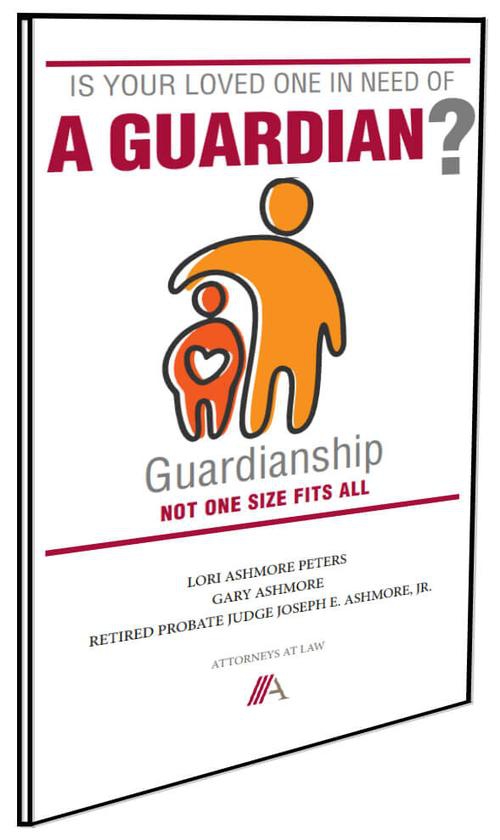If you feel that a loved one is in need of a Guardianship, it is important that you understand the process before jumping in with both feet.
You need to make sure you have a complete understanding of all of the people involved in the process and everybody’s roles and responsibilities. You also need to understand all of the paperwork that is required and what each document is for.
Complete a Certificate of Medical Examination and Questionnaire
The first step is to begin filling out the guardianship questionnaire that is provided by your attorney. You will also need to speak to your loved one's doctor and ask him or her to fill out a Certificate of Medical Examination (“CME”). Most doctors that work with the elderly are familiar with this paperwork. This document is very straightforward and self-explanatory. It is this CME that will let you, your attorney, and the Court have a better understanding of your loved one's incapacity. It is this letter that will reflect which activities your loved one is capable of handling on their own and, more importantly, which activities they cannot handle on their own. Once you have the completed CME and questionnaire, the attorney can now begin preparing the Application.
Application
The CME will direct the attorney to whether your loved one needs a Guardian of the Person, Guardian of the Estate, or both. This Application gives the basic information for your loved one, such as where they live, their date of birth, what their possible incapacity is, how many times they were married, how many children they have, etc. (It is important to note there are laws that dictate who can serve as a guardian and who has priority. We recommend that you speak with a qualified Guardianship attorney to understand these laws and whether you can even serve as a guardian.) This Application also gives your information-- where you live, your relation to your loved one, and that under the laws you are able to serve as the guardian. It also gives the details of all of your loved one's assets and expenditures. The application and CME are both filed with the Court in order to begin the Guardianship process.
Court Investigator
Once the Application is filed, the Court will appoint a Court Investigator. This person is an extension of the Court, and their role is to visit with you and your loved one and determine if a Guardianship is truly needed and if you are the proper person to be named. The Court Investigator prepares a Report and files it with the Court.
Attorney Ad Litem
As soon as the Court receives the Court Investigator’s Report, the Judge will appoint an Attorney Ad Litem. This is an attorney who has been certified to serve in this specific capacity. Anytime someone is in front of the Court, they have the right to be represented by an attorney. Because your loved one may not have the capacity to hire an attorney, the Court will appoint one for them. The role of the Attorney Ad Litem is to visit with your loved one and talk to your attorney.
Hearing
As soon as the Court Investigator and Attorney Ad Litem completes their investigation, the hearing is scheduled. At the hearing, the Judge reviews the Court Investigator’s report and also reviews the CME. The Judge then hears your testimony explaining why you think your loved one needs a guardian and why you should be the one appointed. The Attorney Ad Litem will also have an opportunity to ask your loved one questions. Once the testimony is given, the Judge makes the determination as to whether they feel your loved one is in need of a Guardian of the Person, Guardian of the Estate, or both, or none at all.
After the Hearing
Depending on the type of Guardianship needed and the specific circumstances surrounding each matter, additional documents will need to be filed and future hearings in front of the Judge may be necessary. The hearings don’t mean anything is wrong. If you are named Guardian, your qualified Guardianship attorney will keep you on track and let you know what you can and cannot do as Guardian. As Guardian of the Person or Estate, or both, you cannot make any decisions on behalf of your loved one without the Court giving you the authority to make those decisions. This includes, but is not limited to, spending any amount of money, ie. paying bills, paying for groceries, medication, shopping, etc. Also, you cannot make any medical decisions or decisions about where your loved one should live without the Court’s approval.
We know we just gave you a lot of overwhelming information, but we feel it is very important that you have a complete understanding of the process before any decisions are made. We can tell you, that if you hire a qualified Guardianship attorney, this process is not completely overwhelming and runs quite smoothly.
Are You Seeking An Experienced Guardianship Lawyer In The Dallas Area?
If you are in need of an experienced guardianship attorney please contact us online or call our Dallas office directly at 214.559.7202. We help clients throughout the Dallas area and look forward to helping you.


